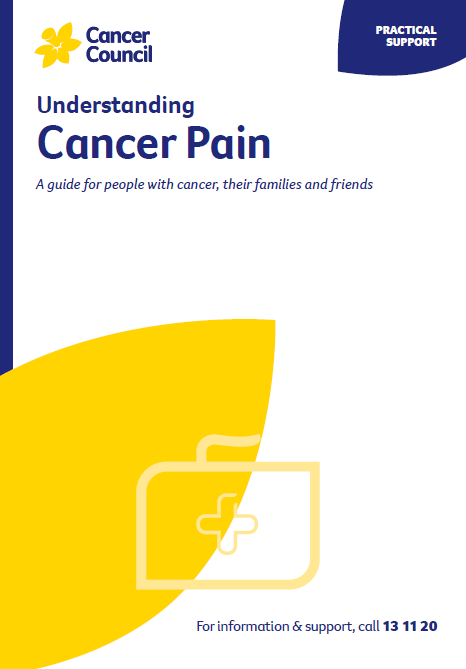- Home
- About Cancer
- Managing side effects
- Pain and cancer
- Managing pain with medicines
- Medicinal use of cannabis
Medicinal use of cannabis
Medicinal cannabis is a medicine that comes from the cannabis plant (also called marijuana). This plant contains many cannabinoids. Two of these – tetrahydrocannabinol (THC) and cannabidiol (CBD) – are found in most medicinal cannabis products.
Cannabinoids are chemicals that act on certain receptors found in the central nervous system. This is similar to how opioids interact with the body.
Research on medicinal cannabis and cancer
Research studies have looked at the potential benefits of using medicinal cannabis to relieve symptoms and treatment side effects of cancer. There is some evidence that cannabinoids can help people who have found conventional treatment unsuccessful for some symptoms and side effects, for example, chemotherapy-induced nausea and vomiting.
There is no evidence that medicinal cannabis can treat cancer.
To date, published studies have shown medicinal cannabis to have little effect on appetite, weight, pain or sleep problems. The International Association for the Study of Pain does not endorse the use of medicinal cannabis for pain. Research is continuing in this area.
Legal status of cannabis in Australia
In Australia, it is illegal to use, possess, cultivate or sell cannabis for recreational or personal use (with the exception of the ACT).
Access to Medicinal Cannabis in Australia
The Australian Government has legalised access to medicinal cannabis strictly for medicinal purposes. Australia’s Therapeutic Goods Administration (TGA) regulates the supply of medicinal cannabis. To prescribe this product, doctors must have approval from the TGA.
The laws for obtaining medicinal cannabis vary between states and territories. Although in most states and territories, any doctor can now apply for approval to prescribe medicinal cannabis. These laws may affect whether you can be prescribed medicinal cannabis where you live.
For more information about medicinal cannabis, see tga.gov.au/medicinal-cannabis.
Podcast: Managing Cancer Pain
Listen to more episodes from our podcast for people affected by cancer
More resources
Professor Paul Glare, Chair of Pain Medicine, Northern Clinical School, Faculty of Medicine and Health, The University of Sydney, NSW (clinical update); Dr Tim Hucker, Pain Specialist, Northern Beaches Hospital, Director, Northern Beaches Pain Management, NSW (clinical update); Dr Keiron Bradley, Palliative Care Consultant, Bethesda Health Care, WA; A/Prof Anne Burke, Co-Director Psychology, Central Adelaide Local Health Network, President, Australian Pain Society, Statewide Chronic Pain Clinical Network, SA, School of Psychology, The University of Adelaide, SA; Tumelo Dube, Accredited Pain Physiotherapist, Michael J Cousins Pain Management and Research Centre, Royal North Shore Hospital, NSW; Prof Paul Glare (see above); Andrew Greig, Consumer; Annette Lindley, Consumer; Prof Melanie Lovell, Palliative Care Specialist HammondCare, Sydney Medical School and The University of Technology Sydney, NSW; Caitriona Nienaber, 13 11 20 Consultant, Cancer Council WA; Melanie Proper, Pain Management Specialist Nurse Practitioner, Royal Brisbane and Women’s Hospital, QLD; Dr Alison White, Palliative Medicine Specialist and Director of Hospice and Palliative Care Services, St John of God Health Care, WA.
View the Cancer Council NSW editorial policy.
View all publications or call 13 11 20 for free printed copies.

